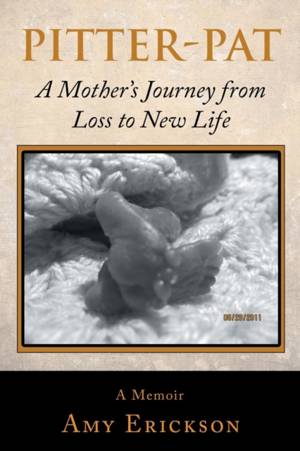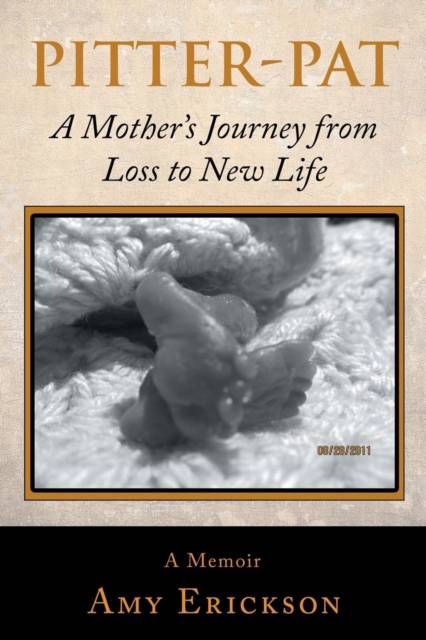
Bedankt voor het vertrouwen het afgelopen jaar! Om jou te bedanken bieden we GRATIS verzending (in België) aan op alles gedurende de hele maand januari.
- Afhalen na 1 uur in een winkel met voorraad
- In januari gratis thuislevering in België
- Ruim aanbod met 7 miljoen producten
Bedankt voor het vertrouwen het afgelopen jaar! Om jou te bedanken bieden we GRATIS verzending (in België) aan op alles gedurende de hele maand januari.
- Afhalen na 1 uur in een winkel met voorraad
- In januari gratis thuislevering in België
- Ruim aanbod met 7 miljoen producten
Zoeken
€ 22,45
+ 44 punten
Uitvoering
Omschrijving
No one goes into pregnancy expecting to lose a child. Even when it happens, the event can feel so surreal a mother can wonder if she's just woken from a terrible nightmare. In Pitter-Pat, author Amy Erickson offers a touching and often heartrending memoir about a mother trying to make sense of her life after the unexpected loss of her second child, Gabriel, who was born prematurely and who lived briefly before passing. Written in the form of letters to her lost son, it documents the events in Erickson's life that transpired following her loss. The correspondence reinforces her deep and abiding love for Gabriel, her devotion to his memory, as well as her commitment to telling the world her son lived, he mattered, and he will always live on in heaven. Her depiction of her relationship with her first son, Julian, is equally touching, as this family of three tries in earnest to bring another child into their home. Pitter-Pat shares a raw, unfiltered, honest portrayal of what it means to grieve for a child, subtly addressing the pressures of society to heal quickly after loss, the difficulties in maintaining previous relationships in a world turned upside down, and the isolation and alienation grieving parents often feel. This memoir offers insight for any parent who has experienced the loss of a child or anyone seeking to better understand this journey of grief.
Specificaties
Betrokkenen
- Auteur(s):
- Uitgeverij:
Inhoud
- Aantal bladzijden:
- 336
- Taal:
- Engels
Eigenschappen
- Productcode (EAN):
- 9781982217907
- Verschijningsdatum:
- 26/01/2019
- Uitvoering:
- Paperback
- Formaat:
- Trade paperback (VS)
- Afmetingen:
- 152 mm x 229 mm
- Gewicht:
- 494 g

Alleen bij Standaard Boekhandel
+ 44 punten op je klantenkaart van Standaard Boekhandel
Beoordelingen
We publiceren alleen reviews die voldoen aan de voorwaarden voor reviews. Bekijk onze voorwaarden voor reviews.









